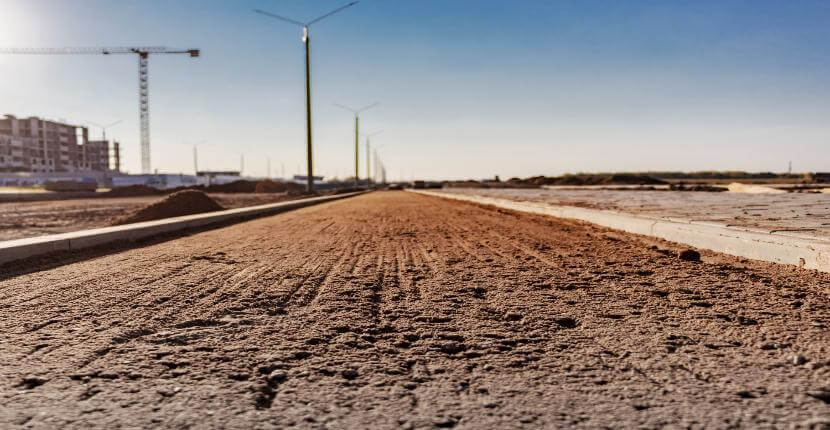
Ground Stabilisation in Hoddesdon
Enquire Today For A Free No Obligation Quote
At Ground Stabilisation, we specialise in improving soil strength and stability in Hoddesdon to support construction and infrastructure projects. Our ground stabilisation techniques enhance the load-bearing capacity of soils, preventing erosion, subsidence, and ground movement.
Whether you’re preparing a site for building foundations, reinforcing slopes, or stabilising roadways, our team ensures reliable and long-lasting results. We utilise a range of methods, including mechanical, chemical, and geosynthetic solutions, tailored to your site’s specific requirements.
Catering to clients in Hoddesdon EN11 8 and across the UK, we deliver efficient and sustainable ground stabilisation services for diverse applications.
What Are the Benefits of Ground Stabilisation?
Ground stabilisation in Hoddesdon enhances structural integrity by improving the soil’s strength, which supports buildings, roadways, and embankments and reduces the risk of ground movement or collapse. This is crucial in areas prone to landslides or subsidence.
Another significant benefit is cost savings. Stabilised ground requires less maintenance, reducing long-term expenses associated with erosion control or structural failure.
Additionally, stabilisation contributes to environmental protection by controlling erosion and maintaining slope stability. Implementing effective ground stabilisation not only ensures safety and durability but also reduces the need for frequent repairs.
How Much Does Ground Stabilisation Cost in Hoddesdon?
The cost of ground stabilisation in Hoddesdon ranges from £50 to £150 per square metre. Mechanical methods like compaction or soil nailing may cost less than chemical injection techniques.
Additional expenses include soil testing, engineering assessments, and equipment rental. For instance, chemical stabilisation using lime or cement may incur higher material costs compared to geosynthetic solutions.
Contact Ground Stabilisation in Hertfordshire to get customised prices for getting ground stabilisation services at your construction site.
What Are the Most Common Methods of Ground Stabilisation?
Ground stabilisation in Hoddesdon can be achieved through several methods, each suited to specific conditions:
- Mechanical Stabilisation: Involves compacting soil or using techniques like soil nailing to reinforce slopes. Suitable for coarse or granular soils.
- Chemical Stabilisation: Uses binders like lime, cement, or polymers to solidify and strengthen the ground. Ideal for clayey or silty soils.
- Geosynthetic Solutions: Employs geotextiles, geomembranes, or geogrids to reinforce and separate soil layers. Commonly used for road construction and embankments.
- Biological Methods: Involves planting vegetation to stabilise slopes and control erosion. Effective for environmental management projects.
How Is Ground Stabilisation Performed?
Ground stabilisation in Hoddesdon starts with a site assessment to analyse soil conditions and identify stability needs. Next, engineers perform method selection based on soil type and project requirements. The preparation phase involves clearing the area, setting up equipment, and ensuring safety measures.
During application, techniques like injecting binders, compacting soil, or installing geosynthetics are used. Finally, a post-installation inspection ensures that the stabilisation is effective and meets safety standards.
How Long Does Ground Stabilisation Last?
The lifespan of ground mechanical stabilisation in Hoddesdon lasts around 20 to 30 years, especially when reinforced with geosynthetics. Chemical methods, like cement or lime stabilisation, can last 30 to 50 years, depending on environmental factors.
To extend the effectiveness, regular maintenance and inspection are essential, particularly in areas subject to heavy loads or shifting soils. Using protective coatings or maintaining vegetation in biologically stabilised areas also contributes to long-lasting results.
How to Maintain Stabilised Ground in Hoddesdon?
Maintaining stabilised ground in Hoddesdon involves regular inspections to detect any signs of movement, subsidence, or surface cracking. Monitoring vegetation growth in areas stabilised biologically helps maintain slope stability.
For geosynthetic installations, inspect membranes and grids to ensure they remain intact. Drainage systems should be kept clear to prevent water accumulation, which could compromise stability. Implementing a maintenance schedule helps prolong the life of stabilised ground and prevents issues from escalating.
Which Industries Benefit Most from Ground Stabilisation?
Ground stabilisation in Hoddesdon is essential across various industries:
- Construction: Ensuring foundation stability and supporting embankments.
- Infrastructure: Reinforcing roads, railways, and airport runways.
- Environmental Management: Controlling erosion and slope reinforcement.
- Mining and Quarrying: Stabilising loose soil and tailing piles.
Are There Eco-Friendly Options for Ground Stabilisation in Hoddesdon?
There are sustainable ground stabilisation in Hoddesdon methods available, such as using natural binders like lime or bio-polymers, which help reduce environmental impact. Vegetative stabilisation, involving grasses and deep-rooted plants, naturally reinforces slopes and reduces erosion.
Minimising environmental disruption during installation by using low-impact machinery and reusing stabilised soil supports sustainable land management.
Contact Ground Stabilisation in Hoddesdon EN11 8 to get consultation on safe and sustainable practices while using ground stabilisation services.
Find More Info
Make sure you contact us today for a number of great ground stabilisation services in Hoddesdon.
For more information on ground stabilisation in Hoddesdon EN11 8, fill in the contact form below to receive a free quote today.
★★★★★
“Ground Stabilisation provided expert solutions for our subsidence issues. Their team was efficient, professional, and explained every step clearly.”
Malcolm Thorne
Hertfordshire
★★★★★
“We had ongoing problems with soil movement until Ground Stabilisation stepped in. The quality of their work was outstanding and made a real difference.”
Renee Callister
Hertfordshire